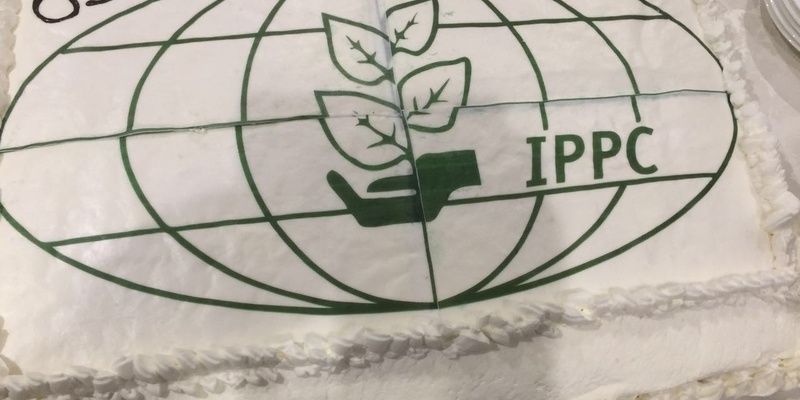The Glorious History and Great Achievements of the IPPC in 65 Years
Posted on Mar, 17 Oct 2017, 09:50

Celebrating the 65th anniversary of the IPPC
The International Plant Protection Convention (IPPC) was established in 1952, and this year is 65th anniversary of the IPPC. On occasion of the annual meeting of the IPPC Strategic Planning Group (SPG) held at FAO Headquarters in Rome, Italy, from 10-12 October 2017, Mr Jingyuan Xia, IPPC Secretary, made a keynote address on development and achievements of the IPPC in 65 years, highlighting three important aspects.
-
Historical development of the IPPC. The IPPC has gone through four major stages of development in the last 65 years. The first stage is the Origin of the IPPC (1881-1951), where the first international agreement to stop grape aphids in Europe was signed in Berne in 1881, and the first IPPC was signed in Rome in 1929. The second stage is the Founding of the IPPC (1952-1979), where first IPPC was adopted by the sixth Session of FAO Conference in 1951, and came into force on 3 April 1952. The third stage is the Expansion of the IPPC (1980-1997), where the IPPC was recognized as the only international standard setting and implementation body for phytosanitary measures by the WTO-SPS Agreement in 1986, and the IPPC Secretariat was established in 1992 as an article XVI body under the FAO Chapter. The fourth stage is the Today of the IPPC (1980-presnt), where the Commission of the Phytosanitary Measures (CPM) was established in 2005 based on the Committee of Experts on Phytosanitary Measures (CEPM) formulated in 1993, the CPM Bureau established at the same time of the CPM, and the CPM Finance Committee (FC) established in 2012.
-
The major achievements of the IPPC. Since its establishment, the IPPC has helped ensure food security and contributed to protecting biodiversity, as well as provided the framework for facilitating safe trade. The World Trade Organization Agreement on Sanitary and Phytosanitary Measures (WTO SPS Agreement) has recognized the IPPC as the only international standards setting and implementation body for plant health. Through the development for the past 65 years, the IPPC has got 183 contracting parties (NPPOs) and nine regional plant protection organizations (RPPOs). Over Ninety International Standards for Phytosanitary Measures (ISPMs) have been adopted and implemented, covering all the areas related to food security, agriculture trade and environment protection. Meanwhile, the IPPC have developed the partnership and cooperation with over 40 international and regional organizations in the areas of the technical related, the trade-related, the environment-related, the industry-related, and the resource related.
-
The Way forward of the IPPC. There are increasing demands of the IPPC from it contracting parties as the risk of pest introduction is increased due to global movement of people and goods, and the pest incidence also increased due to the climate change. The IPPC s work is directly related to the seven United Nations Sustainable Development Goals (SDGs) for 2030 Agenda, say SDGs 1, 2, 8, 12, 13, 15, and 17. The way of the IPPC forward 2020 is to disseminate the established annual themes related to plant health from 2016 leading up to 2020, the proposed International Year of Plant Health (IYPH). We are, presently, under the process of setting up the IPPC Strategic Framework for 2020-2030.
In conclusion, the Secretary Xia encourage all IPPC contracting parties and RPPOs to organized some activities to celebrate the 65th anniversary of the IPPC so as to increase the presence, visibility and impact of the IPPC at global, regional and national levels. This would certainly increase awareness of the value of the IPPC and the commitment of the IPPC in protecting the world s plant resource from pests.


